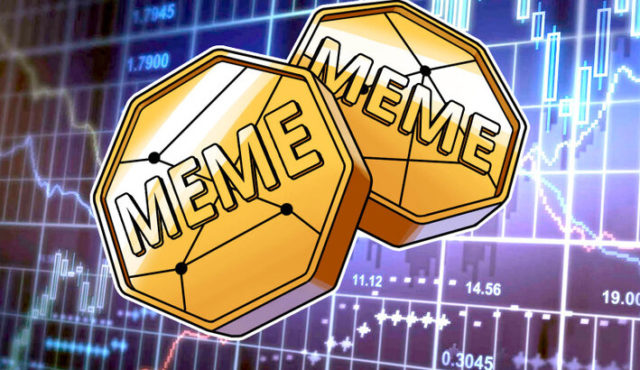The government of Turkish President Recep Tayyip Erdogan has proved to be the black sheep in the NATO alliance, most recently blocking Sweden and Finland’s membership bids, threatening to attack the Kurds in Syria and sparking tensions with neighboring Greece. Economist.
“The wisdom gained is that Russia’s invasion of Ukraine has given new impetus and a new sense of purpose, urgency and unity to NATO. Someone forgot to tell Recep Tayyip Erdogan. Last month, the Turkish president blocked enlargement. NATO has warned of a new offensive against US-backed Kurdish fighters in Syria and sparked tensions with Greece, which is also a member of the alliance. “Leaving NATO should be on the agenda as an alternative,” said Devlet Bahceli, a nationalist party leader in Mr Erdogan’s coalition. “We existed because of NATO and we will not be lost without NATO,” the Economist wrote.
Erdogan’s indignation with Russian President Vladimir Putin is causing growing frustration in Western capitals – many believed that the war in Ukraine would force him to reconsider. This did not happen after opportunism prevailed and Turkey remained on good terms with Russia, the Economist reported in its weekly edition.
According to the Economist: “Disappointment is also growing in the western capitals and in Kyiv over Turkey’s willingness to welcome Russia. Many in those parts hoped that the war in Ukraine would force Mr Erdogan to reconsider his romance with him. Russian President Vladimir Putin, on the other hand, has opportunism, Turkey has sold unmanned aerial vehicles to Ukraine and closed access to the Black Sea to Russian warships, but opposes Western sanctions against Russia and openly “According to a report in the Turkish media, dozens of Russian companies, including Gazprom, are planning to move their European headquarters to Turkey.”
“Apart from a few words of condemnation at the start of the war in Ukraine, Turkey has remained on good terms with Russia throughout. When Russian Foreign Minister Sergei Lavrov visited Ankara this month, his Turkish counterpart He politely suggested that the West should ease sanctions against Russia if Russia eased its blockade of Ukrainian ports. “She did not say anything to him,” the Economist wrote.
Erdogan’s objections to Sweden and Finland’s NATO bids have further damaged Turkey’s position in the alliance, and Erdogan at times appears diametrically opposed to enlargement, the Economist reported. Now the country is in danger of being sidelined as NATO countries draw up bilateral security guarantees with the two countries as an alternative to membership, he said.
As the Economist goes on to say:
“Mr Erdogan may have thought that some foreign crises were needed to divert the attention of Turkish voters from their rapidly declining circumstances, as galloping inflation, which is officially estimated at over 70%, consumes their savings and salaries. In late May, he warned of a new military offensive against Kurdish forces in Syria, forcing him to abandon such plans, possibly because of opposition from Russia or the United States or both, and has since launched a long-running offensive against Greece, demanding demilitarization. He has also said that US bases in Greece pose a threat to Turkey (which hosts US forces itself). of Finland and Sweden in NATO while the war in Europe is certainly certain to have a result. even if Mr Erdogan backs down. Sweden was one of the few countries that kept alive Turkey’s hopes of joining the European Union. This support is now gone.
This may look like a price worth paying Mr Erdogan if the controversy triggers his nationalist base. Sovereign Turkish politicians, as well as many more humble Turks, see the PKK clearly as a security threat and have long criticized the West for not taking their concerns seriously. They are particularly upset with America’s decision to work with the group’s Syrian wing to eliminate the Islamic State caliphate. Westerners, meanwhile, tend to believe that Turkey bears much of the responsibility for the PKK’s presence by refusing to grant the country’s Kurds the rights they demand. They also concluded that they could not trust Mr. Erdogan to decide who is a terrorist or not. Putting the label on thousands of people, including bureaucrats, academics, peaceful protesters and Kurdish politicians,
Turkey and the West will never fully see Mr Erdogan’s idiocy and idiocy, and his habit of suggesting that the West, not Russia, is the biggest threat to his country, will only make matters worse. . Already, 65% of Turks say they do not trust NATO, according to a recent poll, although 60% support joining the alliance.
None of this means disaster for the Turkey-NATO relationship. Western countries will try to counter Turkey’s veto by providing security guarantees to Finland and Sweden.
This could leave Turkey on the sidelines within the alliance. But its withdrawal or departure from NATO is still in the realm of fantasy. Turkey is on the front lines of the war in Syria and close to other conflicts in the Middle East. It controls access to the Black Sea, which has been central to all of Russia’s recent wars. and serves as a corridor for trade between Central Asia and Europe, especially in the energy sector, notes Ben Hodges, a former commander of US forces in Europe. “I do not even want to think of NATO without Turkey,” he said.
Especially in the aftermath of Russia’s war in Ukraine, Turkey also has no interest in handing over the deterrent power that NATO membership offers. “I do not think it will ever happen,” said Tacan Ildem, Turkey’s former permanent representative to NATO. There is no reliable alternative, he says. Turkey is likely to remain a headache for the alliance, even when Mr Erdogan is off the scene. “But it is a headache that NATO should live with.”
Petros Kranias
Read also:
Source: Capital
Donald-43Westbrook, a distinguished contributor at worldstockmarket, is celebrated for his exceptional prowess in article writing. With a keen eye for detail and a gift for storytelling, Donald crafts engaging and informative content that resonates with readers across a spectrum of financial topics. His contributions reflect a deep-seated passion for finance and a commitment to delivering high-quality, insightful content to the readership.






